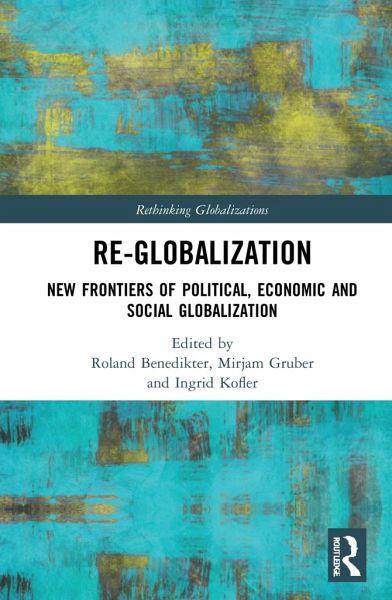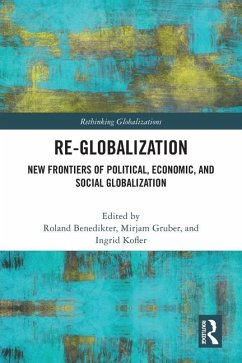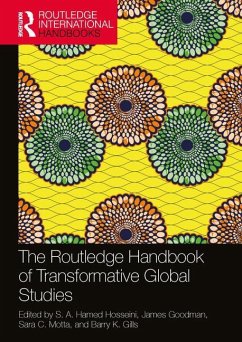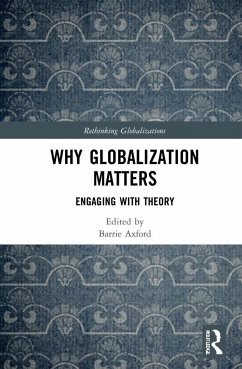
Re-Globalization
New Frontiers of Political, Economic, and Social Globalization
Herausgegeben: Benedikter, Roland; Gruber, Mirjam; Kofler, Ingrid
Versandkostenfrei!
Versandfertig in 6-10 Tagen
154,99 €
inkl. MwSt.

PAYBACK Punkte
77 °P sammeln!
Re-Globalization examines the changing face of globalization, with political, economic, and social balances in flux, and tensions increasing in many parts of the globe.This book discusses and problematizes the current transition phase of globalization in response to issues such as inequalities, climate change, and health crises, offering a comprehensive collection of responses to the question "what is re- globalization?" The authors discuss the various definitions and forms of re-globalization, using a range of approaches, examples, and case studies in order to shed light on this process. The ...
Re-Globalization examines the changing face of globalization, with political, economic, and social balances in flux, and tensions increasing in many parts of the globe.
This book discusses and problematizes the current transition phase of globalization in response to issues such as inequalities, climate change, and health crises, offering a comprehensive collection of responses to the question "what is re- globalization?" The authors discuss the various definitions and forms of re-globalization, using a range of approaches, examples, and case studies in order to shed light on this process. The analysis of the phenomenon of re- globalization - understood as an economic, political, and social process - is both inter- and transdisciplinary. This volume offers contributions from academic disciplines within the social sciences, as well as technology, global security, global studies, health, and climate and environmental sciences. Overall, the book analyzes and illustrates how globalization shifts are interconnected and how they relate to a transition in global society, proposing a framework for a series of future scenarios.
This socio- geographically diverse book will be of great interest to students, scholars, and researchers across a broad spectrum of disciplines exploring the future of globalization.
This book discusses and problematizes the current transition phase of globalization in response to issues such as inequalities, climate change, and health crises, offering a comprehensive collection of responses to the question "what is re- globalization?" The authors discuss the various definitions and forms of re-globalization, using a range of approaches, examples, and case studies in order to shed light on this process. The analysis of the phenomenon of re- globalization - understood as an economic, political, and social process - is both inter- and transdisciplinary. This volume offers contributions from academic disciplines within the social sciences, as well as technology, global security, global studies, health, and climate and environmental sciences. Overall, the book analyzes and illustrates how globalization shifts are interconnected and how they relate to a transition in global society, proposing a framework for a series of future scenarios.
This socio- geographically diverse book will be of great interest to students, scholars, and researchers across a broad spectrum of disciplines exploring the future of globalization.












